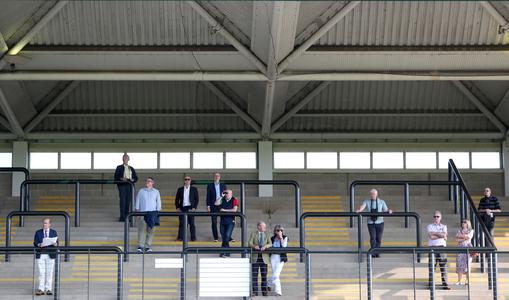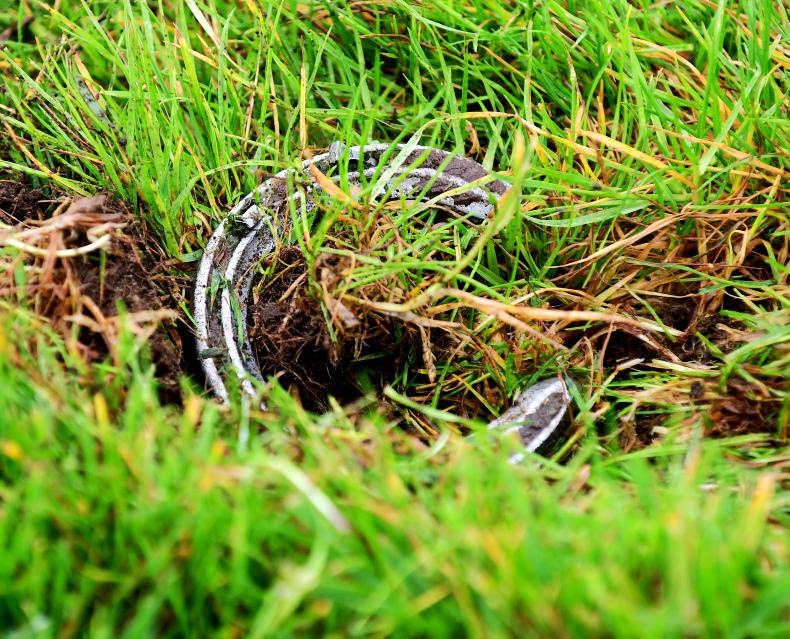ARENA Racing Company’s chief executive Martin Cruddace believes British racing could go behind closed doors “within 48 hours” as a result of the escalating coronavirus outbreak.
The British Horseracing Authority has followed Government guidance throughout as the pandemic has spread, and the Cheltenham Festival therefore took centre stage last week as scheduled, featuring significantly increased hygiene facilities and multiple hand sanitiser stations for racegoers.
Prime Minister Boris Johnson announced on Thursday that, although Britain was officially moving into the delay phase to mitigate against coronavirus infection, there was no need yet to suspend major sports events.
However, a different stance was taken in both Ireland and Scotland, with Governments there introducing bans on mass outdoor gatherings of 500 people or more, and reports late on Friday night suggested the rest of the UK could soon follow suit.
ARC owns 16 British racecourses, including Uttoxeter, which staged the Midlands Grand National on Saturday.
Speaking on Sky Sports Racing’s Sunday morning programme, Racing Debate, Cruddace said: “Where we are right now is that we are following the current Government advice, but I think it’s safe to say that (Government stance) is very, very likely to change and is very, very likely to change imminently and it’s important that we are prepared – and we are – for what’s going to come our way.
“We all have our views on Cheltenham and Uttoxeter, and they are perfectly legitimate views one way or another, but the fact is as a responsible company there’s one institution you look to for guidance and that’s the Government.
“It’s not for me to say the chief medical adviser or chief scientific adviser or Government, with all of its incredible support and infrastructure, is wrong.
“The only thing that we can do as a responsible company and, dare I say it, an industry, is to follow Government advice.”
Planning
Cruddace expects a change in that advice in the very near future – and said it was not impossible that racing could take place behind closed doors in Britain up to the end of June, a period which not only includes the Grand National meeting at Aintree, which is due to be held on April 2nd-4th, but several other high-profile events like the Guineas Festival at Newmarket, the Derby at Epsom and Royal Ascot.
“We are outliers with other parts of the racing world, but I think it’s only right that we should be prepared for an imminent change and my own personal view is it could be within 48 hours,” said Cruddace.
“We’re planning, worst case scenario, end of June. It is absolutely possible we won’t race again in front of a crowd until the end of June.”
While a continuation of racing behind closed doors would be considered far better than no racing at all, it will, of course, still have huge financial ramifications for the sport.
Asked how how serious the situation was for his company, Cruddace added: “It’s particularly serious, I think we can weather the storm, but it will mean that unless we have support elsewhere we will not be able to put the fixtures on that the industry or the bookmaking industry needs.
“I think viability of racecourses is seriously in question, unless as an industry we work together and find the support that I think might be out there.”
Race meetings in Scotland and Ireland are already being run behind closed doors, with stringent measures in place to limit the number of people on course.
Ireland
Racing in Ireland took place under the new guidelines at Dundalk on Friday and Navan on Saturday, and also at Limerick on Sunday.
Brian Kavanagh, chief executive of Horse Racing Ireland, admits the situation is ever changing.
He said on Racing TV’s Luck on Sunday programme: “So far we’ve had two meetings under the ‘closed door’ policy and they went fine. There were a couple of little learnings, but nothing major.
“Obviously we don’t know what is around the corner with this outbreak and we’re conscious that it was the infection of coaches and players which effectively closed the football down. That is the sort of thing you would be concerned about.
“We’re confident at the moment. We had the meeting in Navan on Sunday, which would usually have 2,500 people. It went ahead with less than 300 people there and most of them were either involved with a horse or working at the meeting. That’s comfortably within the (Irish) Government’s guidelines of limits of 500 people.
“The initial Government instruction was until March 29th, so for the next two weeks at least we will be under these circumstances. Who knows what happens thereafter?
“Navan on Saturday was a sorry sight to see, but you’ve got to look at the bigger picture – there’s a major public health issue here, so we’re just glad to be able to keep racing.”
Like Cruddace, Kavanagh acknowledges racing behind closed doors will have significant economic implications, not only for the ruling body but for the sport as a whole.
He said: “The longer it goes on it will be a challenge (for HRI financially), but I don’t think that’s the important issue at the moment, the important issue is to try to get a grip on this disease and its spread.
“I think it’s our duty to try and keep the wheels turning, keep prize money going into the system and keep people earning a living.
“Anyone working in yards are dependent on racing continuing, so it is a concern. It’s a concern probably as much for racecourses as it is for Horse Racing Ireland as they’re losing sponsorship and gate receipts.
“You can survive on media rights revenue for a couple of meetings, as a long-term proposition that’s not viable, but there’s no choice.”
Asked whether he felt Irish horses and racegoers could be restricted from travelling to Aintree, should the meeting take place, Kavanagh said: “There’s no policy (on movement) at the moment. We’re guided completely, as we were in relation to Cheltenham, by the Irish Government.
“There’s been a big shift in public mood over here, only in the course of the last week. Going to Cheltenham wasn’t an issue as people left and then once people were in Cheltenham, we were becoming aware of disquiet back home that there were so many Irish people at such a major meeting as Cheltenham.
“There’s no restrictions on horses at the moment and let’s hope by the time Aintree comes around there’ll be some light at the end of the tunnel. It’s hard to see it, but we’re meeting on a daily basis and we’re taking it one step at a time.
“Aintree is a consideration, but that’s a little bit down the road.”
Surprise
Prominent owner Rich Ricci enjoyed two winners at Cheltenham, with Min in the Thursday’s Ryanair Chase and Monkfish striking gold in the Albert Bartlett Novices’ Hurdle on Friday.
Ricci spoke of his surprise the meeting went ahead unaffected, but praised the efforts of the team at Cheltenham.
He said: “Surprising is the word that comes to mind. I thought all week they might do something, but I suppose you follow the advice you’re given.
“We heard what the Government said all week and I thought Cheltenham did an outstanding job – the precautions they took, the extra sanitisers around, the encouragement for people to wash their hands and the extra hot water they brought in the last day.
“I know there’s a bit of controversy about some of the Irish going back to Ireland and not self quarantining. That will be interesting, to see how that plays out, given they took a very different approach to what we did in this country.
“I was surprised (racing went ahead unaffected) and I think the prospect of behind closed doors racing must be pretty high, unfortunately – but we’ve got to act in the public and national interest.”
SUBSCRIBE TO THE IRISH FIELD AND READ ALL OUR PREMIUM CONTENT


 This is a subscriber-only article
This is a subscriber-only article
 It looks like you're browsing in private mode
It looks like you're browsing in private mode










SHARING OPTIONS: